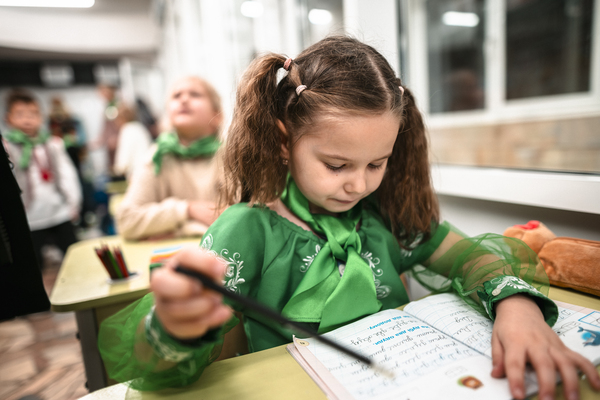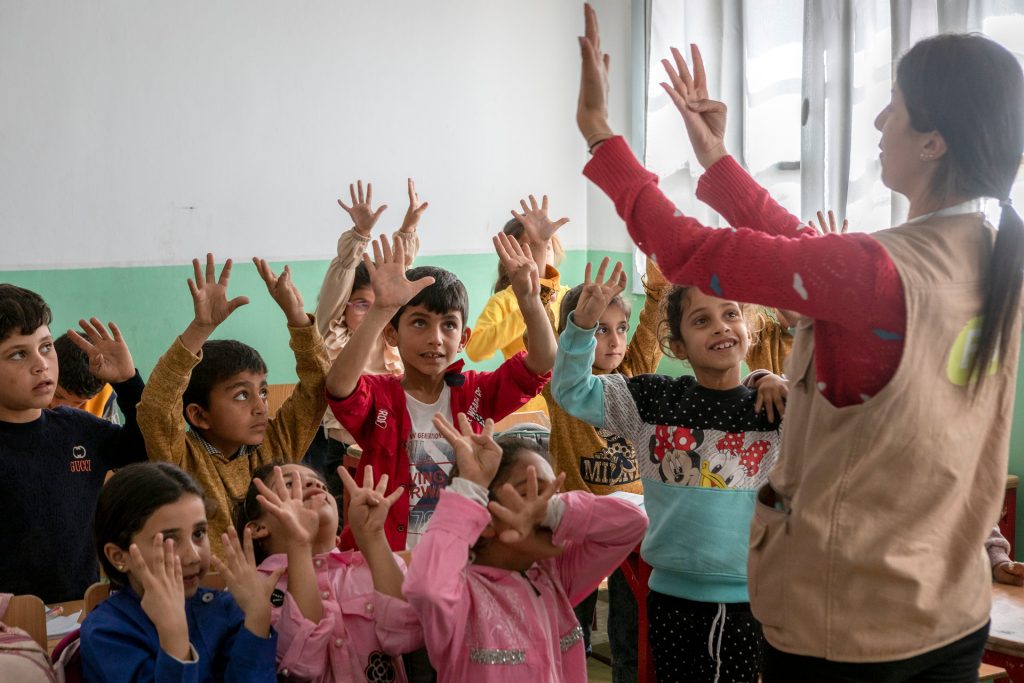The world’s schoolchildren need 44 million new teachers – education is future security, even in crisis areas of the world
January 24th is the International Day of Education. Finnish expertise in education is highly valued worldwide, also in developing countries and in crises. FCA is concerned about the effects of development cooperation cuts on Finland’s support to education in the world.
THE COVID CRISIS showed that getting to school and quality education should not be taken for granted anywhere. Schools need professional teachers and other educational personnel. According to UNESCO, the world would need 44 million new teachers internationally to achieve the goals set for primary and secondary education by 2030.
“A competent, motivated and appreciated teacher is the cornerstone of all learning, from which a positive cycle starts,” says FCA Senior Education expert Pauliina Kemppainen..
The number of conflicts in the world is increasing, as a result of which more and more children and young people are deprived of the opportunity to participate in safe and high-quality education. The traces of the Coronavirus pandemic are also still visible, especially in those countries where there have been long school closures in recent years. Closures meant the schooling of millions of children and young people was interrupted in some places for up to two years. Some of those who dropped out of school at that time have not returned to school to this day.
“Children and young people dropping out of school is one of the biggest reasons for child and teenage pregnancies and for underage marriages,” continues Kemppainen.
“Currently, 250 million children do not go to school, and 222 million of them need support in conflict and crisis areas. Every child who stays out of school is one too many.”
In the countries where FCA operates, the conditions are often such that going to school is challenging or impossible. The trip to school can be unsafe or take hours over difficult terrain. On the other hand, schools have also been targets of bombing, for example during the war in Ukraine.
According to estimates, 365 school buildings in Ukraine were destroyed and 3,798 damaged by the end of 2023. In accordance with international humanitarian law, schools fall under the same protection as hospitals in conflict situations and cannot be attacked. Nevertheless, schools are still often attacked or used for the needs of military actors, resulting in children and young people not having access to a safe education.

School represents a future even for children and young people living in the midst of war
“In crisis situations, school is also a safe space for children and young people, which represents both the future and alternatives to situations such as early marriage,” says Kemppainen.
She adds that for the most disadvantaged children and young people, education represents the chance for the only meal of the day, receiving vaccines that maintain basic health, and strengthens their own well-being, for example in terms of mental health.
Young people who have received a high-quality education are also more likely to find employment than those who have not attended school, which helps entire societies to develop and prosper.
“When educated young people get a chance to earn a better living, their families are also better off, which helps more and more children go to school. The positive cycle brought about by education becomes concrete.”

Cuts to development cooperation must not jeopardise the worldwide appreciation of Finland’s education sector skills
Securing high-quality, inclusive and equal primary and secondary education, as well as lifelong learning opportunities for everyone, are the cornerstones of Finland’s development policy. Finnish professionalism in the field of education is highly valued in developing countries.
“Petteri Orpo’s government is targeting development cooperation and humanitarian aid with big cuts. We are particularly concerned about whether these cuts will affect the work being done in education. Cuts in education should not be made in development cooperation either,” says Tapio Laakso, FCA Head of Advocacy.
The cuts made by Petteri Orpo’s government to development cooperation must not endanger education.
Finn Church Aid works in the world’s most fragile countries with both basic education and vocational training. We also train teachers with the help of volunteers from our Teachers Without Borders network. The focus of the work is particularly on securing the education of children and young people who are refugees or otherwise in a vulnerable position.
More information and interview requests:
Pauliina Kemppainen, FCA Senior Expert, Quality Education, Pauliina.Kemppainen@kirkonulkomaanapu.fi
Tapio Laakso, FCA Head of Advocacy
Tapio.Laakso@kirkonulkomaanapu.fi, +358 50599 6986
Elisa Rimaila, Communication Expert
Elisa.Rimaila@kirkonulkomaanapu.fi, +358 50599 6986